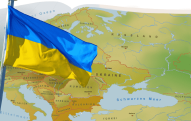German natural gas storage facilities only 37 percent full
The consumption of natural gas is continuing, and as a result the levels in Germany's storage facilities are also falling further. As of January 30, natural gas storage facilities still have a level of 37 percent. This is very low for this time of year - especially as strong consumption is expected until spring. A year ago, storage levels were 46 percent, and before that 86 percent and 63 percent respectively.
One of the main suppliers of natural gas is Russia. Due to the Ukraine conflict and the increasing tensions between Russia and the West, the supply of natural gas is also coming into the political spotlight. For example, the approval of the Nord Stream 2 natural gas pipeline is being mentioned more often as a means of European pressure, which would have to be prohibited in the event of Russian aggression. Above all, the question arises as to how secure the energy supply is in Germany.
How long natural gas will suffice for German consumption at present depends on other supplies and also on the weather: The lower the outside temperatures, the more natural gas is needed for heat in buildings. Around half of all households heat with natural gas in Germany.
Shutdowns for industrial customers
For the time being, however, private individuals do not have to expect their homes to get cold. Before that, the consequences would be felt by industrial companies that also rely on natural gas. "The supply was so tight for days in December that shutdowns of industrial customers were organized via extremely high prices," says Sebastian Bleschke, managing director of the Energy Storage Initiative, an association of operators of German gas and hydrogen storage facilities. This was basically market-based crisis management.
Discussions about the security of gas supplies began in Europe years ago. But so far, little has changed in terms of dependence. Bleschke says the 2015 debate failed to produce a legal framework that would ensure better winter preparedness. He refers to "Long-Term Option" (LTO) regulations that have been introduced and are intended to safeguard gas networks. "As currently designed, they are completely unsuitable for ensuring a secure gas supply overall," Bleschke says. In terms of gas supply security, the previous federal government had relied on the market.
The new traffic light government is currently discussing plans to secure the energy supply. But that is unlikely to help until next winter. German Economics Minister Robert Habeck (Greens) said Germany must not run into another situation like the one it is in now. "That would be really negligent," he said.
The price of natural gas has risen significantly in the past year because energy demand as a whole has risen sharply around the world and especially in industry. The higher prices are also being felt by German consumers. In January, a household with a consumption of 20,000 kilowatt hours paid an average of 2828 euros for natural gas, more than twice as much as a year earlier, according to comparison portal Check24.
In the European Union, natural gas storage levels are only slightly above the average in Germany at 39 percent. At this time of year, previous years saw storage levels of 52 percent, 72 percent and 53 percent.
Photo by Frantzou Fleurine
Â







 »
»